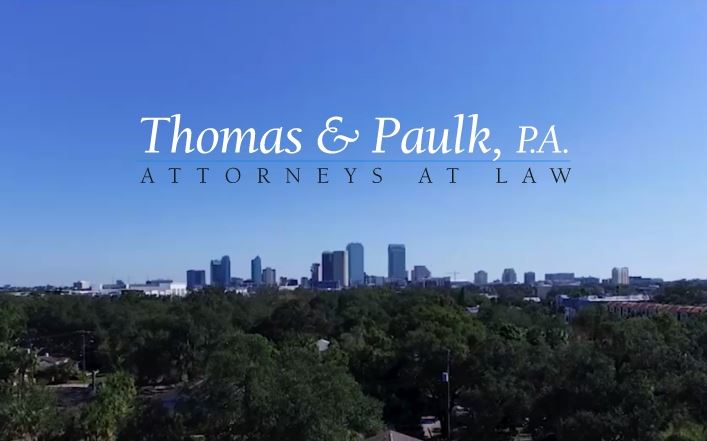
Tampa Prescription Drug Crimes
Experienced Prescription Drug Crime Defense Lawyers in Tampa
When most people think of drug crimes, they think of illegal street drugs such as cocaine or heroin. However, prescription drug crimes are one of the fastest-growing areas of drug-related offenses. Possession of prescription drugs comes with lengthy prison sentences, heavy fines, and in some cases, could end your career.
Prescription drugs are covered under state and federal drug laws. These are regulated and subject to the same classification system, charges, and penalties as illegal narcotics. A defendant may face charges for the unlawful possession, possession with intent, sale, distribution, manufacturing, or trafficking of prescription drugs.
At Thomas & Paulk, we are dedicated to protecting our clients’ rights in handling all types of Florida drug crime charges related to prescriptions such as the following:
- OxyContin
- Hydrocodone
- Vicodin
- Oxycodone
- Xanax
- Codeine
As prescription medications are controlled substances, a person may face felony charges if found to be in possession of one or more of these drugs without a prescription. A person may also face criminal charges for prescription fraud, which involves committing fraud to obtain a prescription. All types of prescription drug charges come with severe penalties, so speak with us today!
Types of Prescription Drug Offenses in Florida
Prescription drug crimes are criminalized under Section 499.03 of the Florida Statutes. Under this section, you cannot legally possess any prescription drug unless you obtained it through a valid prescription from a licensed practitioner. Under Sec. 499.03(3), illegally possessing a prescription drug is a misdemeanor of the second degree, punishable by up to 60 days in jail, or by a fine not to exceed $500, or both. If you illegally possess a prescription drug with the intent to sell, dispense, or deliver the drug, you commit a felony of the third degree, punishable by up to five years in prison and by a fine not to exceed $5,000 or by a fine and imprisonment.
Prescription Drug Crimes Are a Big Business in Florida
Patients who commit prescription drug fraud usually fall into the practice to support their drug addictions. But these days, prescription drugs have become a BIG business and carry a high retail value on the streets. Like other drug dealers, fraudsters will sell their prescriptions or try to dupe their doctors so they can resell their drugs and make a profit. Sometimes, nurses, doctors, and employees at doctors' offices engage in prescription drug fraud when they realize the potential for high-profit margins.
Are Florida's Drug Crimes Too Harsh?
Florida has earned a reputation for having some of the harshest penalties for drug crimes. In fact, the state even lags with the decriminalization and legalization of marijuana—something many states have done to reduce stress on the justice system. Prescription drug crimes carry heavy penalties even when they involve small amounts of an illegal substance. This is partially because of the weight of prescription drugs. A pill might only have a small percentage of its weight be from a controlled substance, with the rest being added by inert substances or “fillers.” Even a few pills could trigger serious drug crime charges.
Protect your future and your freedom. Contact our Tampa prescription drug crime defense lawyers at (813) 221-4200 today!
Proven Defense Lawyers
If you're facing criminal charges for illegally possessing a prescription drug or for trying to sell prescription drugs on the street, contact Thomas & Paulk at once to set up a consultation with our Tampa prescription drug crime attorneys. Let our former prosecutors defend you.
Prescription Drug Charges in Tampa
Pharmacists & Prescription Fraud
According to the Drug Enforcement Association (DEA), "The abuse of prescription drugs—especially controlled substances—is a serious social and health problem in the United States today."
The DEA's message to pharmacists: "You have a legal responsibility to acquaint yourself with the state and federal requirements for dispensing controlled substances." The DEA also explains to pharmacists that they have a legal and ethical responsibility to uphold the law in order to protect society from prescription drug abuse. The DEA also tells pharmacists to find out which drugs are popular on the streets and which drugs are being resold in their area.
With the above in mind, the DEA instructs pharmacists to:
- Know the prescriber;
- Know the prescriber's signature;
- Know the patient;
- Check the dates on prescription orders; and
- Whenever there's a question, call the prescriber.
Prescription Forgery/Fraud in Tampa, FL
How are prescriptions being forged? Here are common prescription forgeries:
- Stealing a doctor's prescription pad and writing prescriptions.
- Altering a doctor's prescription to increase the dosage or number of pills dispensed.
- Stealing a doctor's prescription pad and altering the callback number.
- Calling in one's own prescription to a pharmacy.
Red flags for prescription drug fraud may include a patient receiving a suspiciously large number of prescriptions, a patient returning for refills too often, a prescription not lasting as long as it should, a patient picking up prescriptions for antagonistic drugs (depressants and stimulants) at the same time, a patient trying to pick up prescriptions for multiple people, or several strangers suddenly showing up to pick up prescriptions from the same physician — and they do not live or work in the community or anywhere nearby.
Doctor Shopping & Drug Abuse in Florida
One recent phenomenon related to prescription drug abuse in Florida is what is known as “doctor shopping.”
This is a practice of going to multiple different doctors about the same illness or symptoms to gain multiple prescriptions. Usually, if someone is doctor shopping, it's from an addiction to a specific prescription; in many cases, the patient may exaggerate or fabricate their symptoms. Commonly abused drugs in this process include painkillers and sedatives.
This is formally charged as “Withholding Information from a Practitioner”, which can be found in Section 893.13(7)(a)(8)-(9) of the Florida Statutes. This is a felony of the third degree, which could lead to a 5-year prison sentence and $5,000 fine. If you're being investigated for doctor shopping, it's critical that you talk to a Tampa prescription drug attorney as soon as you can. It may be possible to take certain actions, like getting counseling and treatment, that could reduce the amount of legal trouble you're in before charges are even officially filed.
Prescription Drugs & Florida's Drug Schedules
Even though there are recognized reasons to prescribe marijuana for certain medical conditions, marijuana is viewed as a Schedule I drug in Florida, something that is deemed addictive and lacking medical value. As for more addictive medicines such as Vicodin, these are treated as a Schedule II drug. The sale, delivery, or possession with intent to sell for these types of drugs could mean a 2nd degree felony charge, which could lead to a 15-year prison sentence and $10,000 fine.
Ketamine, anabolic steroids, codeine, and other medications can all be legally prescribed but can also lead to addiction, and are therefore Schedule III drugs. Ambien, Xanax, Valium, and other medicinal drugs are Schedule IV drugs. Someone charged with selling, delivering, or possessing with intent to sell any of these drugs could be looking at the 5-year prison sentence and $5,000 fine for a 3rd degree felony.
Schedule V drugs could still lead to 1st degree misdemeanor charges. Examples of these prescription drugs are Lomotil, Parepectolin, and Motofen. Since this could still yield a full year in jail and a $1,000 fine, whatever charges you're facing, you need a powerhouse Tampa prescription drug attorney on your side, and as quickly as possible.
Mandatory Minimums for Prescription Drugs
Florida Statute § 893.135 establishes mandatory minimum sentences for people convicted of possession of prescription drugs, as well as sales, delivery, manufacturing, or trafficking.
Prescription drug crime penalties include the following:
- 3 years and a $50k fine for 4-14 grams
- 15 years and a $100k fine for 14-27 grams
- 25 years and a $500k fine for 28 grams-30kg
- Life in prison without parole for more than 30kg
These mandatory minimums include morphine, opium, oxycodone, hydrocodone, hydromorphone, or any derivatives. Regardless of the nature or severity of your charges, Thomas & Paulk is here to help. Our Tampa prescription drug crime lawyers at our firm can fight to protect your freedom if you're being accused of any drug-related offense.
Prescription Drug Abuse
Prescription drug abuse has reached epidemic proportions in the United States. According to the National Institute on Drug Abuse, young adults abuse prescription drugs more than any other age group. "Young adults (age 18 to 25) are the biggest abusers of prescription (RX) opioid pain relievers, ADHD stimulants, and anti-anxiety drugs," says the NIDA.
Young adults may abuse prescription medications the most, but people of all ages can be dangerously addicted.
According to the NIDA, "Misuse of prescription drugs means taking a medication in a matter or dose other than prescribed; taking someone else's prescription, even if for a legitimate medical complaint such as pain; or taking medication to feel euphoria."
The most commonly abused prescription drugs include:
- Opioids, such as Oxycodone and Hydrocodone
- Stimulants, such as those prescribed to treat ADHD
- Central nervous system depressants, such as sedatives, hypnotics, and tranquilizers
Accused of a prescription drug crime? Call (813) 221-4200.
-
We personally handle your defense strategy.
Our lawyers have been helping people just like you defend their future for decades.
View Results -
We always put our clients' cases and needs first.
Read our reviews to see what it is like working with our Tampa criminal defense law firm.
See Success Stories -
We're ready to hear your side of the story.
Tell us what happened to you during a completely free and confidential consultation.
Contact Us



